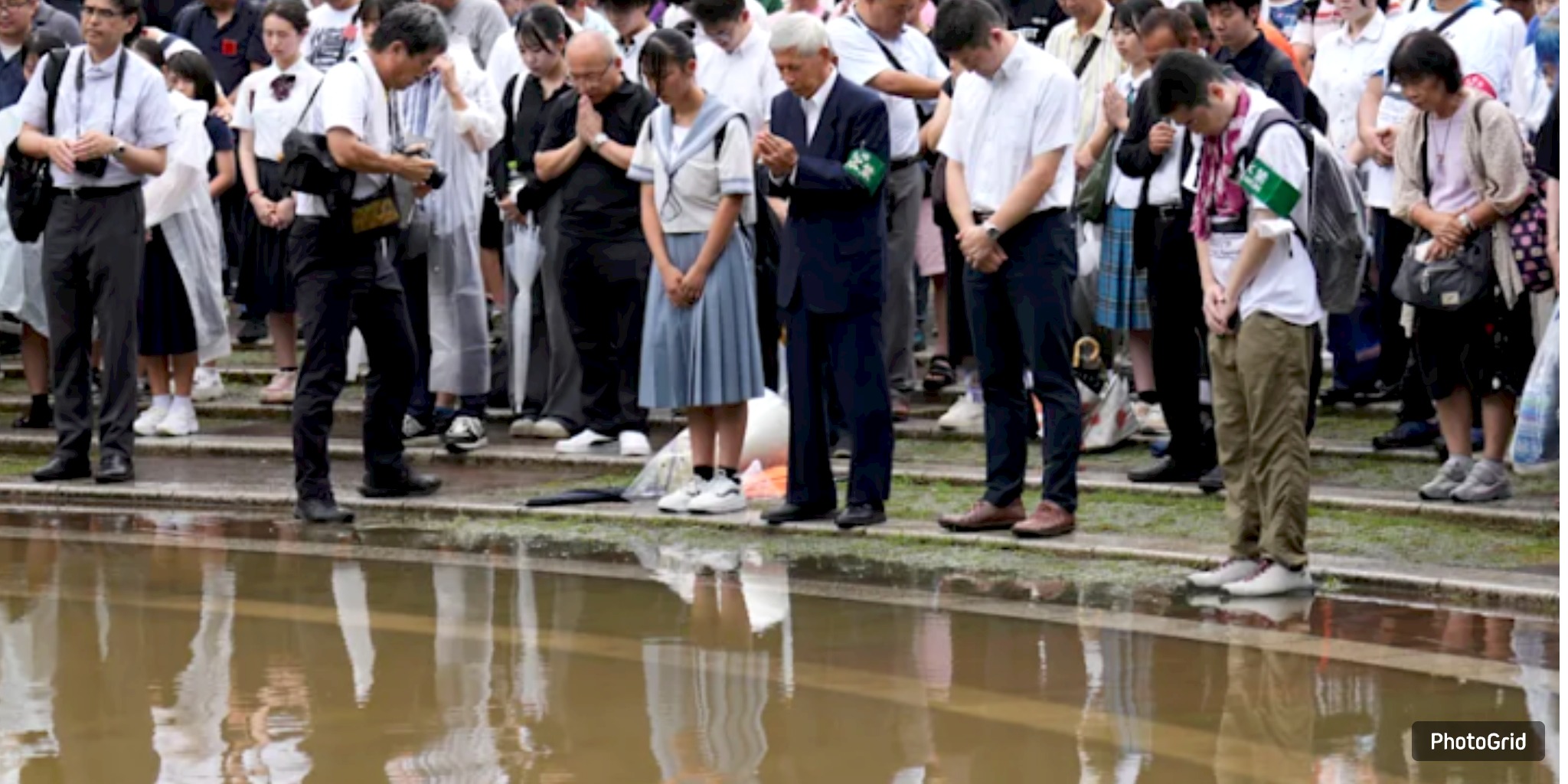


On Saturday, the southern Japanese city of Nagasaki commemorated the 80th anniversary of the U.S. atomic bombing that resulted in the deaths of tens of thousands. Survivors called on the world to guarantee that their hometown would be the last to experience such a nuclear tragedy.
Approximately 2,600 individuals, including delegates from over 90 nations, convened at Nagasaki Peace Park to pay tribute to the victims of the August 9, 1945, bombing. At 11:02 a.m., precisely when the plutonium bomb exploded above the city, those present took a moment to reflect in silence.
Three days after the bombing of Hiroshima, the United States dropped the atomic bomb on Nagasaki, resulting in the deaths of 140,000 by the end of that year. The explosion in Nagasaki resulted in an estimated 70,000 fatalities by December 1945. Six days later, Japan capitulated, marking the conclusion of World War II and its long-standing military expansion throughout Asia.
Mayor Shiro Suzuki, speaking to the audience, urged a revitalized global commitment to eradicate nuclear weapons. “It is essential to share the experiences of the hibakusha with future generations to ensure that no one else endures the same suffering,” Suzuki stated, speaking about atomic bomb survivors.
Prime Minister Shigeru Ishiba reaffirmed Japan's commitment to promoting a world free of nuclear weapons, despite the nation's reliance on the U.S. nuclear umbrella. “We must ensure that the horrors of Hiroshima and Nagasaki are never repeated,” Ishiba stated.
Survivors, now in their late 80s and 90s, voiced their worries about the decreasing number of their peers and the potential fading of memories related to the bombings. There is a growing belief that the younger generation will champion the cause against nuclear energy.
Delegations from nuclear-armed nations were present at the ceremony, yet activists voiced their concerns regarding the absence of tangible disarmament pledges. António Guterres, the Secretary-General of the United Nations, conveyed a message during the event, cautioning that escalating global tensions have increased the likelihood of nuclear conflict to levels not seen in decades.
Following the ceremony's conclusion, attendees placed flowers and paper cranes at the memorial, symbolizing peace and remembrance. Survivors expressed a strong desire that the site of Nagasaki's devastation stands as the final chapter in humanity's history of such events.
















From breaking news to thought-provoking opinion pieces, our newsletter keeps you informed and engaged with what matters most. Subscribe today and join our community of readers staying ahead of the curve.